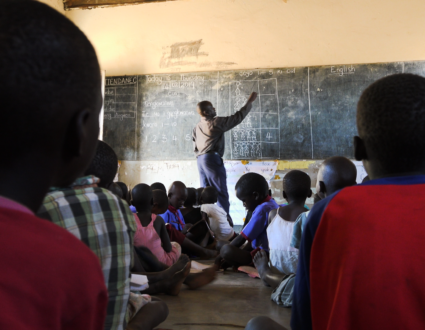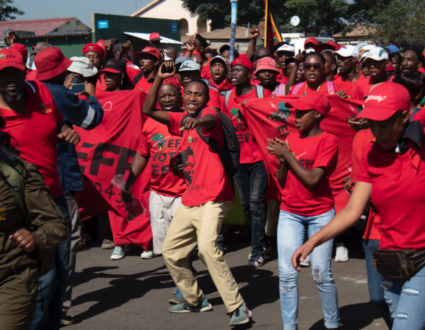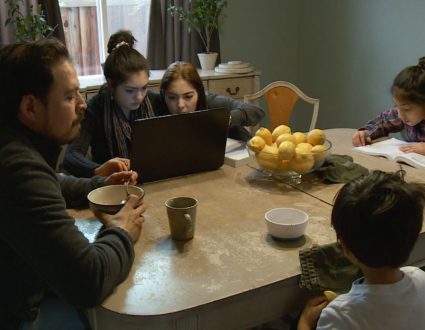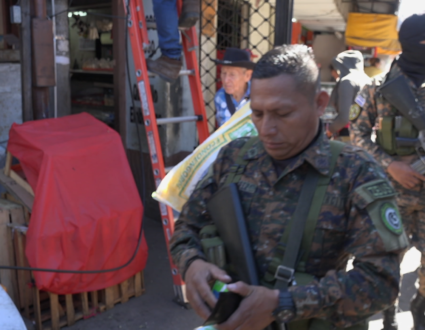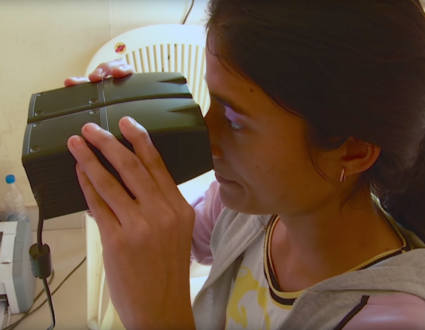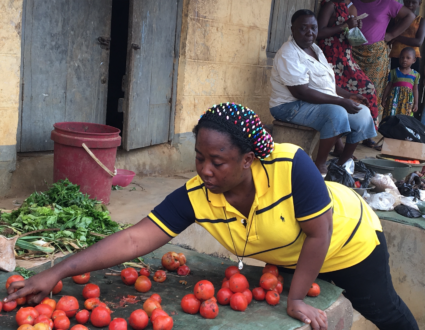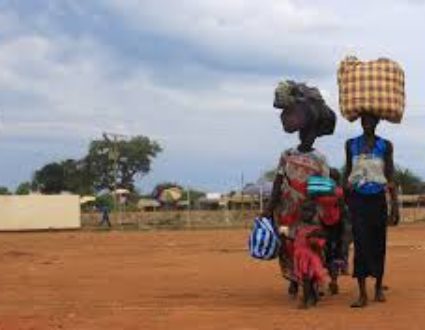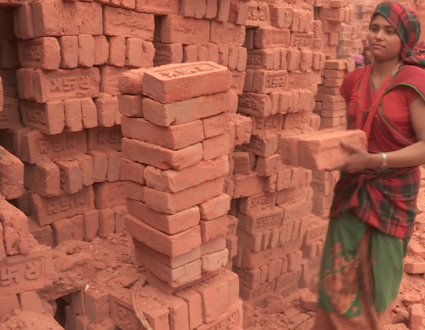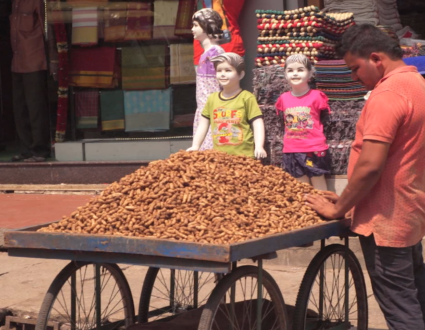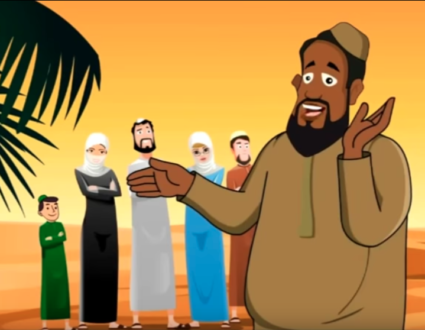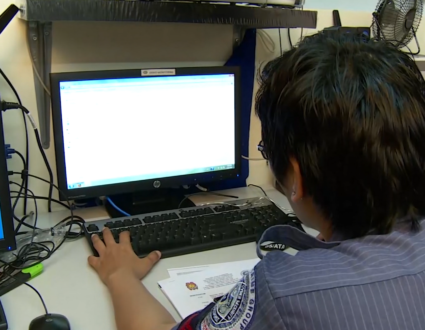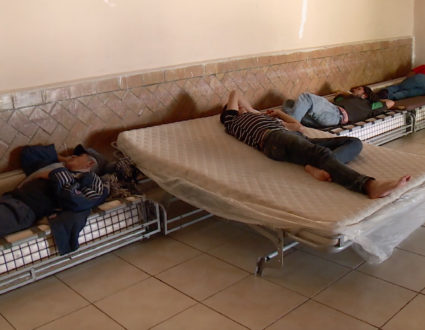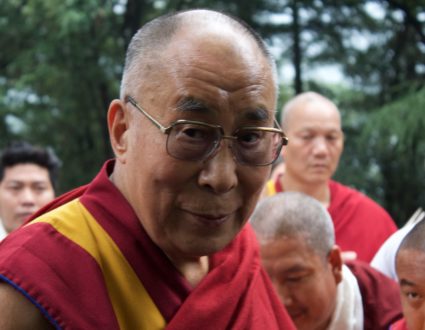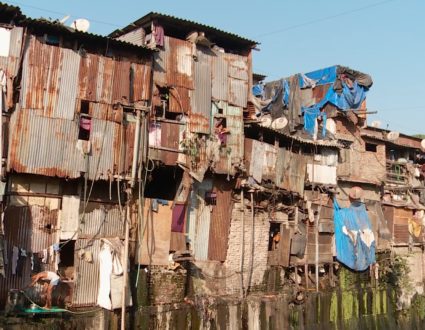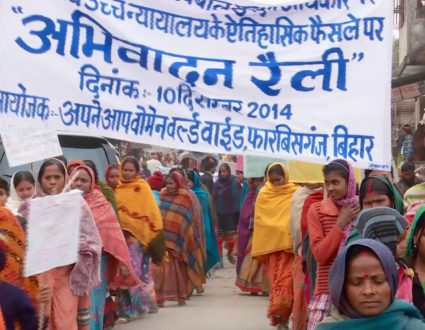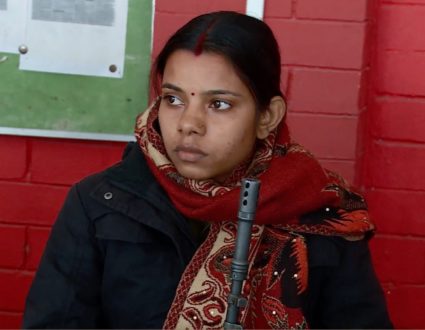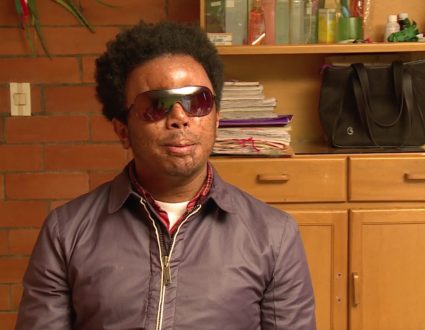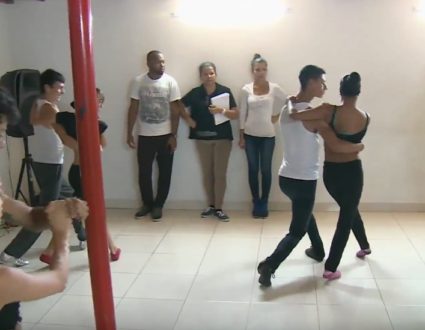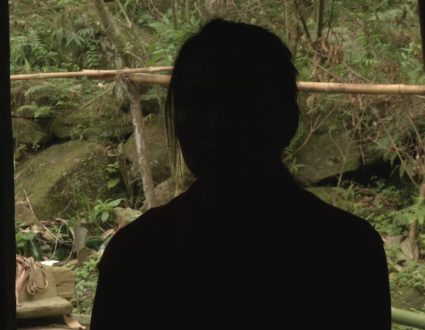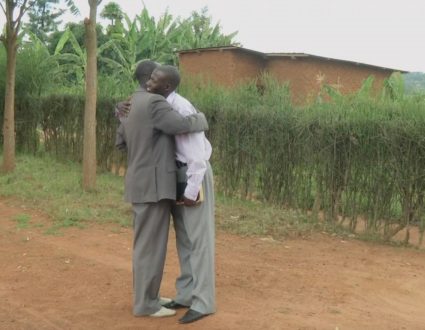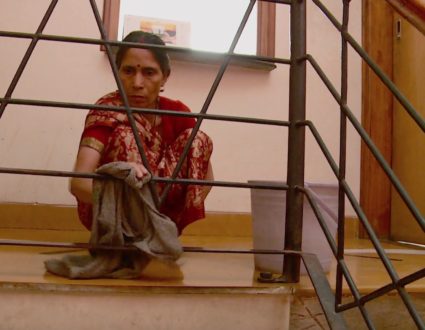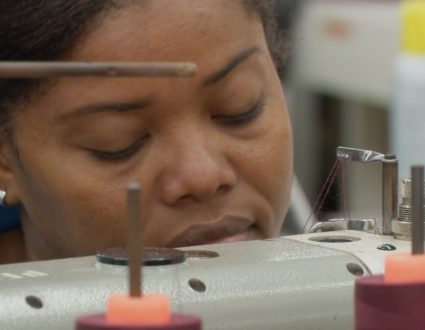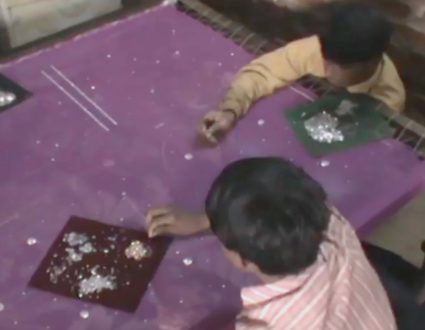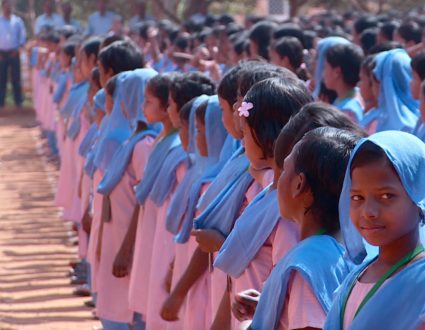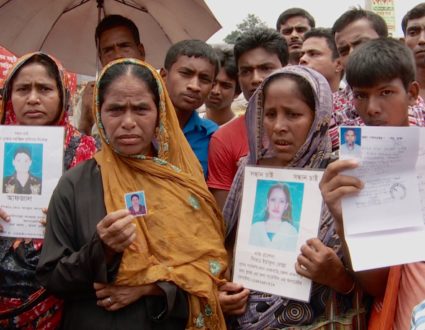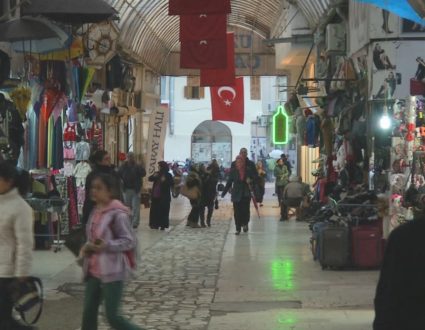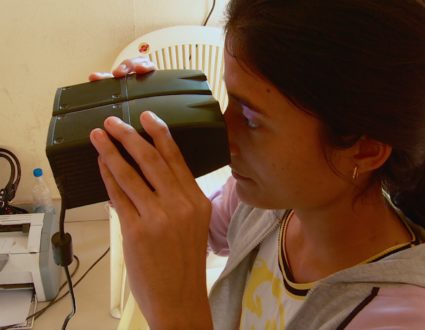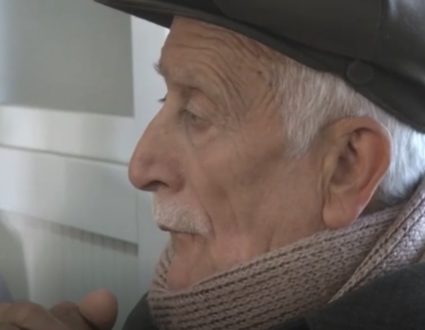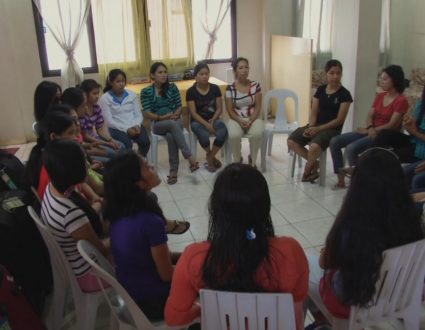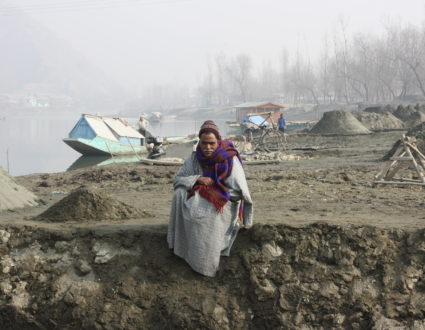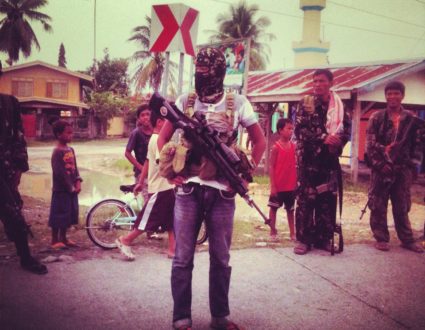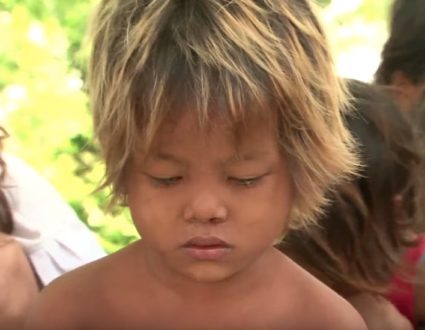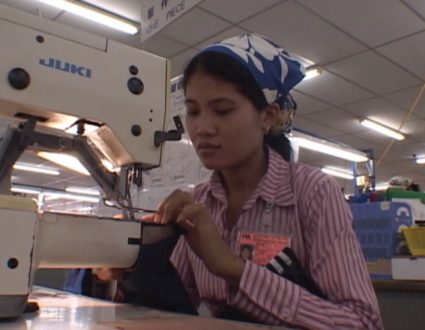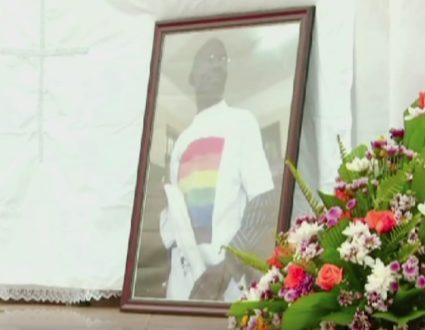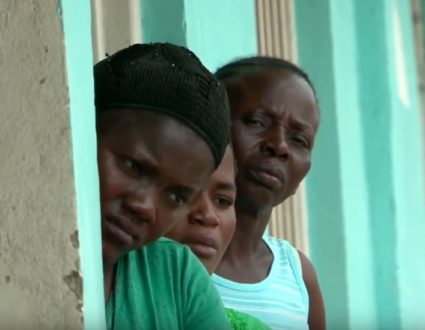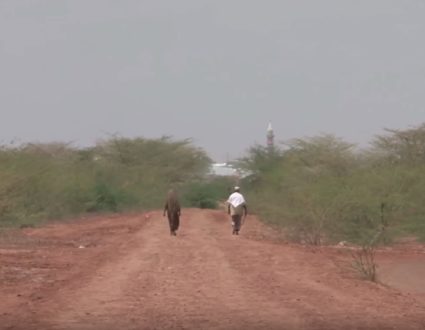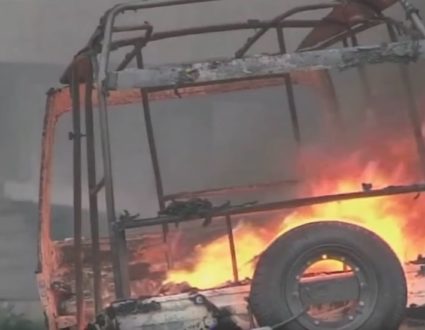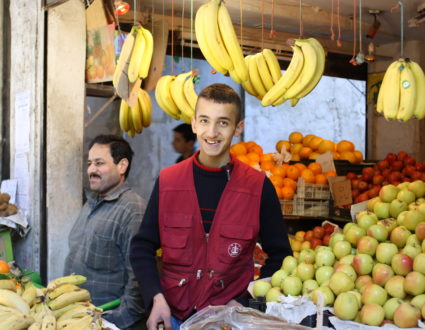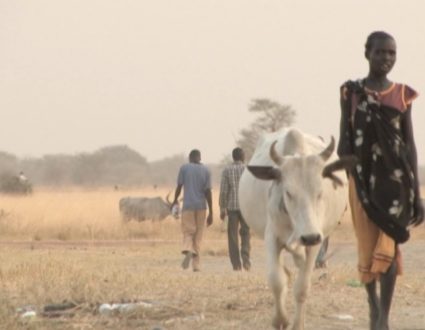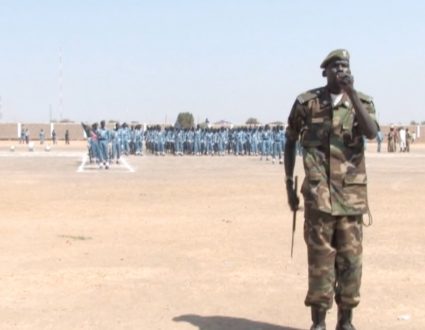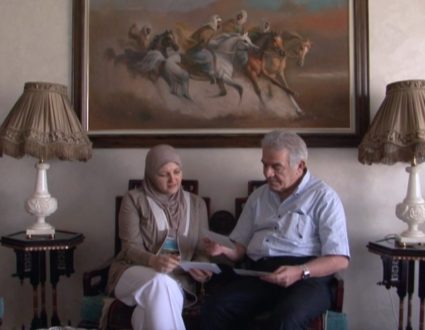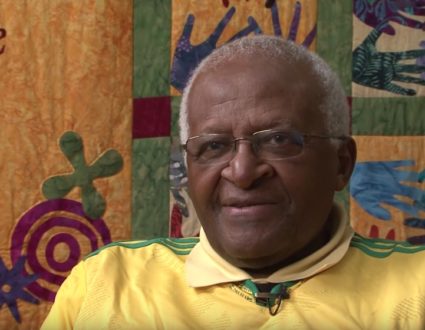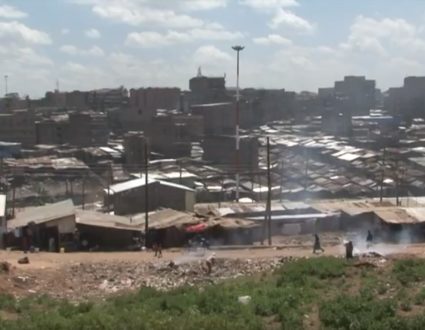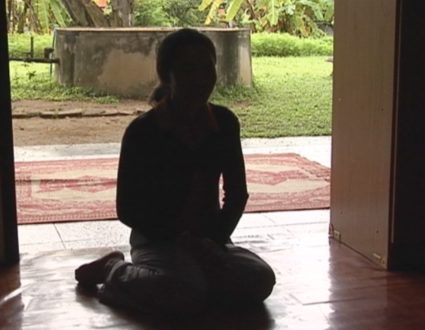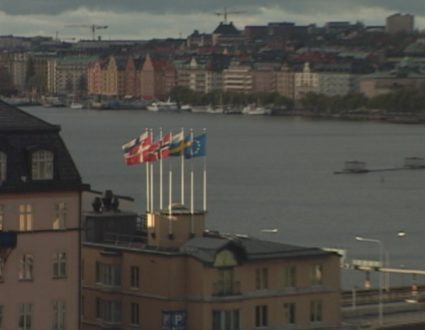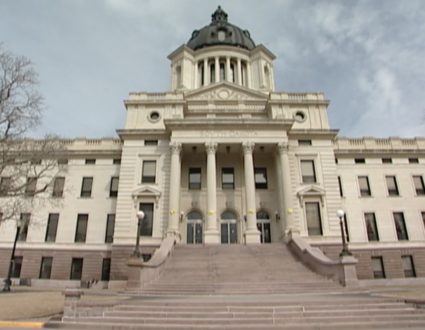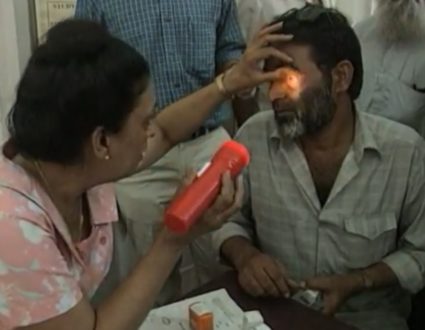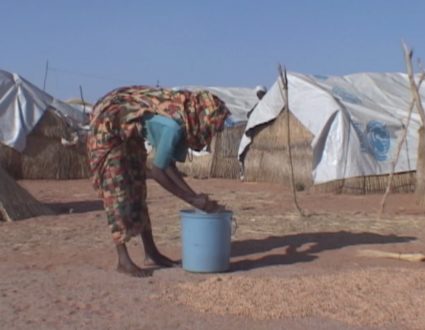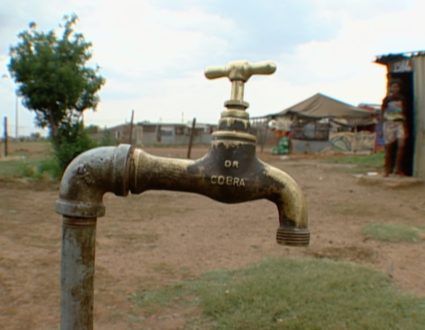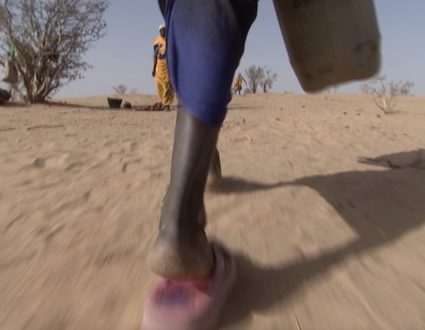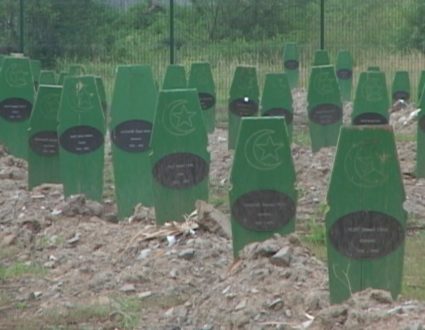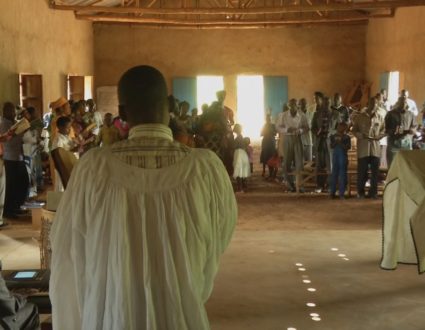- Judy Woodruff:The conflict in Ukraine has also highlighted the crisis of displaced people globally who are seeking safe haven, now numbered at 82 million, according to the United Nations Refugee Agency.Much of the focus in the U.S. has been on immigration enforcement along the Southern border. The Northern frontier with Canada, while much longer, has generally seen less activity, but officials fear that could change.Fred de Sam Lazaro recently visited the frozen frontier between Minnesota and Manitoba.
- Fred de Sam Lazaro:It could pass for a view out an airplane window up in the clouds. In fact, it’s a drive through Minnesota’s far north, the terrain of Border Patrol agent Michael Johnson.
- Michael Johnson, U.S. Border Patrol:Technically, if you were to turn and straddle this, you would be in two countries at once.
- Fred de Sam Lazaro:I would if I wasn’t stuck in about three feet of snow right here.
- Michael Johnson:That’s right.(LAUGHTER)
- Michael Johnson:So, it’s not something that’s an easy traversable path.
- Fred de Sam Lazaro:This Grand Forks sector covers about a fifth of the nearly 4,000-mile continental U.S. border with Canada. Substantial parts of it are thickly forested or aquatic, like the vast Lake of the Woods that we drove on, frozen solid during winter months.
- Michael Johnson:Out there, you see, on the horizon, there’s just like those black lines. That’s all fish houses.
- Fred de Sam Lazaro:Fish houses dot the lake in winter. This border area draws thousands of outdoor enthusiasts year-round.Many incursions here are just people unwittingly crossing a border that’s not well-defined. But agents must remain alert.
- Michael Johnson:Did someone intentionally come across the border? Are they trying to smuggle somebody? Are they trying to smuggle something across the border? Is it a terrorism-type piece, right? So this is a vast area.
- Fred de Sam Lazaro:In a weird sort of way, psychologically, this would be a tempting target, because it’s so vast.
- Michael Johnson:Absolutely.
- Fred de Sam Lazaro:In 2021, agents in this Grand Forks sector made 85 apprehensions, compared to 217 in 2020, a drop attributed to pandemic travel restrictions.Just how many people cross undetected is hard to know, the patrol says. And it’s when conditions are especially harsh, when blowing snow makes it impossible to see anything just a few feet away, that’s just when human smugglers see opportunity, says supervising Border Patrol agent Kathryn Siemer.Kathryn Siemer, U.S. Customs and Border Protection: So, they will do it at the worst times possible, thinking that we won’t be out there patrolling.
- Fred de Sam Lazaro:Which was a plausible thing on January 19.
- Kathryn Siemer:Absolutely.
- Fred de Sam Lazaro:On the morning of January 19, Siemer heard a fateful radio call.
- Kathryn Siemer:One of our agents had encountered a van in an area that we knew had some potential traffic going on. And it was a nationalized U.S. citizen with two migrants from the country of India in the vehicle with him.We’re about a half-mile away from the border. And so everything kind of happened within this half-mile.
- Fred de Sam Lazaro:They arrested the driver, Florida resident Steve Shand and, soon thereafter, five more migrants from India walking down this road, all of them adults.
- Kathryn Siemer:And one of my agents opened up one of the backpacks, and in that backpack were clothing for a toddler, along with a diaper and some medicine for — obviously for a child.
- Fred de Sam Lazaro:That triggered a ground and air search for other migrants by U.S. and Canadian authorities.
- Man:We are now in a position to confirm the identities of the victims. They’re all from the same family and are all Indian nationals.
- Fred de Sam Lazaro:Jagdish and Vaishali Patel, their 11-year-old daughter and 3-year-old son, died from exposure. They were separated from the group in blizzard conditions and temperatures that hovered near 30 below zero.
- Anthony Scott Good, Chief Patrol Agent, Grand Forks Sector:There’s really nothing out there. There’s no cell phone signal to call for help.
- Fred de Sam Lazaro:Scott Good is the Grand Forks patrol chief.
- Anthony Scott Good:Smugglers do not care about human life. They only care about money. So, when somebody comes up and tells you, hey, I can get you into the U.S. or wherever you’re going, and it’s only going to cost this much, the real cost is your life. That’s really what’s on the line.
- Fred de Sam Lazaro:Few people know the Patel family’s journey more than these men.
- Razak Iyal, Refugee:What pains me most, the two kids, the baby and then the little 11 years old kid.
- Seidu Mohammed, Refugee:They are innocent. They didn’t know what is going on.
- Fred de Sam Lazaro:Seidu Mohammed and Razak Iyal crossed the border in the opposite direction, toward Canada. The two Ghanaians, who’d met by chance in Minnesota, were worried they’d be deported after Donald Trump was elected.Late on Christmas Eve in 2016, they were dropped off near the border, with neither guidance nor cold weather gear.
- Seidu Mohammed:The snow also was almost beyond our waist. We have to put our bare hands in the snow and lift our feet. It took us three hours to get out of that field.
- Fred de Sam Lazaro:The two stumbled onto a highway, and were able to wave down a truck.
- Razak Iyal:Before we saw the truck driver, I remember I start telling Seidu: “I can’t feel my fingers.” And he said: “I can’t feel my fingers.” And I said: “Oh, you can’t feel your fingers too.”
- Fred de Sam Lazaro:But once inside the truck, they had a more pressing question.
- Razak Iyal:The first thing I asked him: “Are we in Canada?”And he said: “Yes, this is Canada.”
- Fred de Sam Lazaro:A goal achieved at a catastrophic price. With the exception of Iyal’s right thumb, they lost all their fingers.
- Seidu Mohammed:This shouldn’t have happened, but because of that agreement, that’s why you see us sneaking in.
- Fred de Sam Lazaro:Under an agreement between Canada and the U.S., anyone fleeing their country and applying for asylum must make that claim in the first country where they enter. In other words, if you land in the U.S., then go to a Canadian border post to apply for asylum, you will be sent back to the U.S., and vice versa.But there’s a big loophole,. The rule does not apply to people who simply walk in, sneak in between official border checkpoints.Shauna Labman, University of Winnipeg: You are encouraging people to travel irregularly.
- Fred de Sam Lazaro:University of Winnipeg law professor Shauna Labman says Canada sought the 2004 pact, hoping to slow the number of asylum seekers coming in, while the U.S. saw it as a way to improve border security.
- Shauna Labman:That was known before this agreement came into force, that it might create incentives for human smuggling and that it might also create a backlash against refugees, because they’re seen to be crossing irregularly.
- Fred de Sam Lazaro:Seidu Mohammed and Razak Iyal did get asylum in Canada. They have had to relearn life’s most mundane tasks as they build a new life.But their ordeal or the Patels’ is not likely to deter would-be migrants for long. Many have strong diaspora ties in North America, says Theresa Cardinal Brown with the Bipartisan Policy Center.
- Theresa Cardinal Brown, Bipartisan Policy Center:They’re listening to their family and their friends, who are on Facebook or WhatsApp, or telling them, hey, I made it last month, and I’m working now and my kids are in school.And they’re going to want to join those family members of those that community. There are more people dislocated from their place of home or birth than ever before in history.
- Fred de Sam Lazaro:All this, she says, helps criminal smuggling networks thrive.For the “PBS NewsHour,” I’m Fred de Sam Lazaro at the U.S.-Canadian border near Warroad, Minnesota.
- Judy Woodruff:Such important reporting.Thank you, Fred.
QUIETER AND COLDER
THE NORTHERN BORDER
When displaced people reach the U.S., much of the focus is on immigration enforcement along the southern border. The frontier with Canada is much longer, and in the past it’s also been quieter, but experts say it could see more unauthorized crossings or attempts to cross amid record levels of migration from across the world.

82 million
people are displaced worldwide
-UN Refugee Agency
2,155 encounters along the northern border
in 2020 compared to 916 in 2021.
-U.S. Customs and Border Patrol

Blizzards and below zero
Some migrants risk crossing during the harshest conditions hoping to evade detection from authorities

“Smugglers do not care about human life. They only care about money. So when somebody comes up and tells you, hey, I can get you into the US or wherever you’re going and it’s only gonna cost this much. The real cost is your life, that’s really what’s on the line.”
Anthony Scott Good, Chief Patrol Agent, Grand Forks Sector
“You are encouraging people to travel irregularly. That was known before this (safe third country) agreement came into force, that it might create incentives for human smuggling and that it might also create a backlash against refugees, because they’re seen to be crossing irregularly.”
Shauna Labman, University of Winnipeg

























